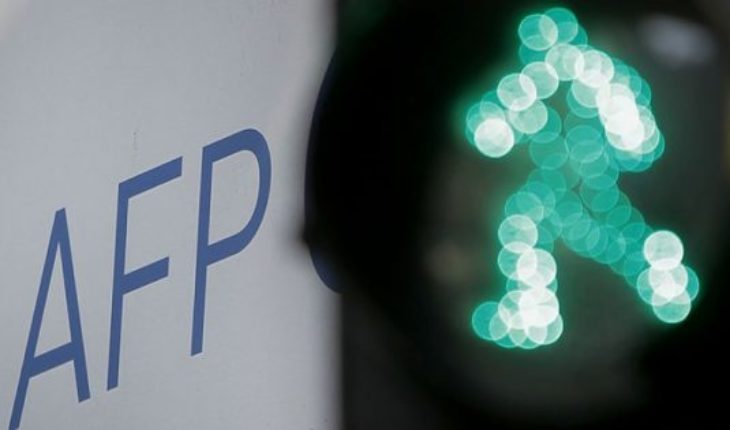The Government should urgently assume 2020, incorporating amendments to D.L. No. 3,500 in its legislative agenda, aimed at effectively incentivizing competition between the seven AFPs it has to in the forecast market, in a market monopolized in the offering of profits and benefits to bidders or clients, which is reduced to seven offering AFPs with an identical investment program for the funds they manage and disparate commissions they charge to from 0.69% to 1.44% per month of affiliate quotes.
The disparity of fluctuation in the band of monthly fees charged by AFPs to its customers – from 069% to 1.44% per month – has no economic and rational explanation, among other market defects. How is this deference to collect fees justified, if the investments of the pension funds they manage are identical or governed by the herding effect in making the investment portfolio? Nor do we know the contributors that the supervisory authority has in this area, we do not refer to the Superintendency of Pensions. This reality of collecting commissions, evidence, without being an expert in economic matters, that this market for AFPs does not work in a transparent and informed way for consumers. Let’s call for the profits or profits of the seven AFPS together as of September to reach $551 million in this year 2019.
On market competition between AFPs, a minimum basis for articulating this legislative agenda, we find it in the executive summary text of the Presidential Advisory Commission Pension System, called the “Bravo Commission”, of September 2015 and whose purpose is to benefit the contributors in this questioned planned model, precisely by the way of incentivising real competition in this market, which indirectly collaborates in granting better pensions to its contributors.
There are no two views on the need for the immediate priority is to increase the amount of minimum solidarity pensions, through additional contributions to provide decent minimum social pensions to pensioners who receive pensions that do not allow to solve the minimums of a life without economic shocks and hardship, in the final phase of life.
It is clear that a legislative agenda of measures that encourage competition between FSPs does not have the virtue of raising pensions substantively and directly on their own, but they do cooperate in that regard. From the so-called Bravo Commission, the following proposals for an incentive to competition between FYPs, which were proposed in 2015, can be implemented, such as: (i) extending the current tender that includes only new members to a fraction of the old affiliates; establish that investment intermediation fees are entirely assumed by AFPs and not by affiliates; create a State AFP that competes with the same rules as the rest of the AFPs, in accordance with the legislative proposal in Congress; and, to allow non-profit legal entities to enter, but with a single twist, to the pension fund management industry.
Indeed, the Bravo Commission noted: “The role of the planned industry is crucial in the effectiveness and efficiency with which population savings are captured and transformed into future pensions. In this regard, there is evidence of low price competition among AFPs, with only 20% of contributors currently affiliated in the AFPs who won the tender introduced by the 2008 Reform and therefore 80% continue to pay much higher commissions.”
With regard to the reception of citizens, the Bravo Commission found in the 2015 citizen consultation regime that: “In particular in the Public Hearings it was stated that the Current Pension System does not adhere to the principles of solidarity, adequacy and universality considered in Convention 102 on ILO Social Security”, a citizen’s perception that questions the legitimacy of Chile’s planned system.
In this context, an agenda of urgent legal reform to D.L. No. 3,500 year 2020 should include the policy of incentivizing competition between AFPs, and in terms of their content consider, at least the following measures: (i) inhibit the possibility that AFPs , charge commission scommissions to contributors when the pension funds they administer record negative average monthly return and only apply the administration fee, where there is positive return on the administration of the funds; (ii) that in the event of the cessation of the affiliate, the collection of administrative fees is suspended until it is requoted for its reinstatement to a new labour market; (iii) regulate the afps’ advertising expenditure regime by setting an annual maximum amount, which should prohibit exacerbating messages or content that validates the AFP in its management, without supporting the actual return on funds in the quarter preceding the action declare the administration fee charged to contributors; (iii) to bring urgent process to the draft law establishing and entering the pension market of a State AFP, with clear regulation to its corporate governance; (iv) allow the entry of non-profit legal persons, not related to banking, insurance companies and Isapres, for the formation of AFPs with a single and exclusive turn.
These reforms to encourage healthy competition between AFPs should be accompanied by an efficient audit by the Superintendency of Pensions, adding that in the COMPendium of Standards of the SP, corporate policies of the AFPs are incorporated, in related to low operational costs, such as directors’ diet costs, austere advertising expenditure policy, transparent contributions they make to Universities, policy of low fees of fund management commissions, among others.
In the same sense as analyzing the Chilean pension system, as an imperfect market, with high profitability for AFPs and high costs for contributors, but low pensions, economists Paula Benavides and Rodrigo Valdes say in their study “Pensions in Chile: background and contours for urgent reform”, October 2018 (PUC), in which they note “The diagnosis that accompanied the presentation of the 2017 reform projects showed that the profits of the system administrators have been high, suggested imperfect competition and spaces to reduce administration costs and to better align incentives between managers and affiliates. In this way, an efficient and competitive operation of the AFP industry should result in low costs for members (limited operating costs and normal profits), an adequate return and security in the investment of pension funds and high quality in the services provided.
These matters should also permeate the public agenda of the Association of AFPs, whose voice and proposals for substantive reforms to the current legislation, has been quite silent and rather defensive from the current system, particularly from the view of its clients or contributors, at a time when the content of the right to social security will be debated in the context of the debate on the future political constitution.
In short, any effort made for substantive legislative reform to the D.L. No. 3,500, which aims to improve the pension system in terms of the competence of FYRs and the quality of their benefits, is imposed as a duty and will be well received by the scentworkers. The delay in these matters and the silence of the executive branch and Association of AFPs, will only deepen the misperception of the citizenry in the Chilean planned model. Can we support a model in which FYR profits as of September 2019 amount to US$511 million and the pensions of the vast majority of pensioners on average does not exceed $320,000 per month for men and $192,000.- for women as of March 2019 by SP source?, Is Chile’s planned fund management system as expensive or onerous, contrasted with the average monthly pension that it delivers as a planned benefit? It then seems necessary to regulate this market and to think of a pricing system by the administration of planned funds.
The content poured into this opinion column is the sole responsibility of its author, and does not necessarily reflect the editorial line or position of El Mostrador.





